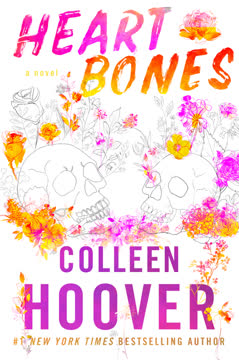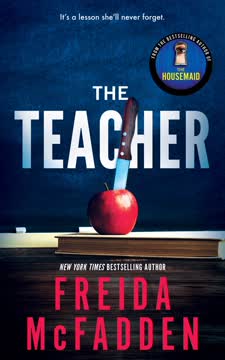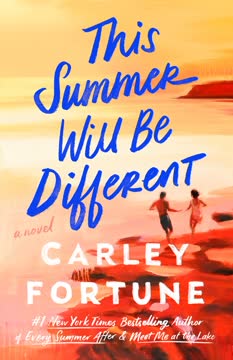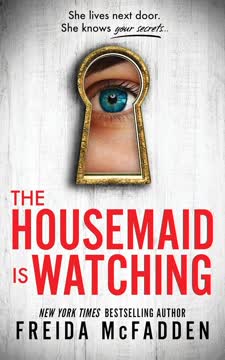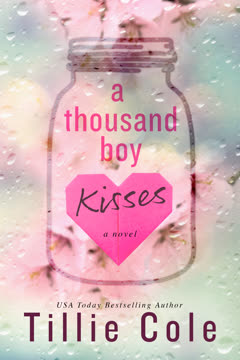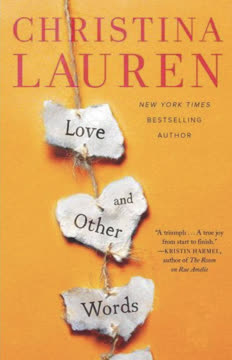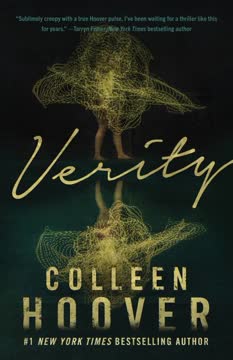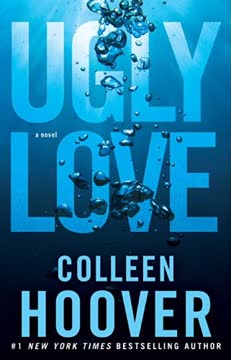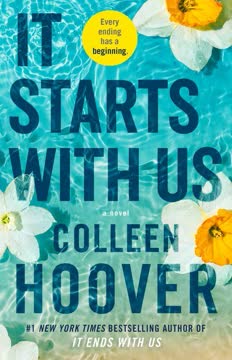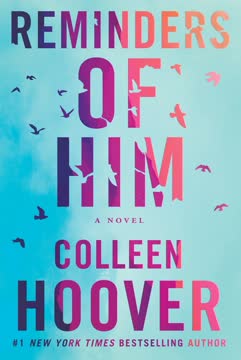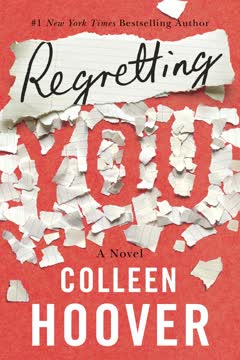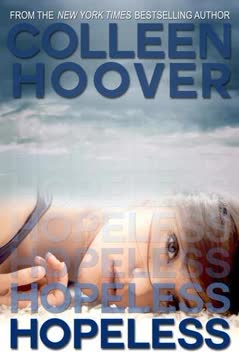Plot Summary
Trailer Park Farewell
Beyah Grim's life in a Kentucky trailer park is defined by poverty, hunger, and her mother's relentless addiction. When Beyah returns home from work to find her mother dead from an overdose, she feels a complicated mix of relief and emptiness. With nowhere to go and an eviction looming, Beyah calls her estranged father, Brian, and arranges to spend the summer with him in Texas. Her mother's death is both an ending and a strange liberation, setting Beyah on a path toward a new life she's never dared to imagine.
Strangers and Step-Siblings
Arriving in Texas, Beyah is thrust into a world of affluence and unfamiliarity. Her father's new wife, Alana, and step-sister, Sara, are warm but foreign, their beach house a stark contrast to Beyah's old life. Sara, bubbly and eager, tries to befriend Beyah, but the differences in their upbringings are glaring. Beyah's sense of alienation deepens, but she's determined to survive the summer quietly, keeping her secrets close and her heart guarded.
Ocean's First Embrace
Beyah's first encounter with the ocean is transformative. The vastness and beauty of the water offer her a sense of peace and possibility she's never known. On the ferry, she meets Samson, a mysterious, wealthy-seeming neighbor with striking blue eyes. Their initial interaction is awkward and charged—he offers her money after seeing her eat discarded bread, which she takes as an insult. Yet, beneath the surface, both recognize a kindred brokenness in the other.
The Boy Next Door
Samson is enigmatic, living alone in a pristine rental house, helping neighbors, and keeping his past hidden. Beyah is drawn to him but wary, especially after witnessing his casual flings. Their paths cross repeatedly—at bonfires, on the beach, and in moments of vulnerability. Despite their differences, a slow, electric connection forms, built on shared loneliness and unspoken understanding.
Secrets in the Sand
As Beyah and Samson grow closer, they begin to share pieces of their pasts. Beyah reveals her mother's addiction and her own survival tactics, while Samson hints at a painful family history and a distrust of relationships. Both are skilled at hiding their wounds, but together, they start to peel back each other's layers. They agree to keep things "in the shallow end"—a summer fling with no promises, no deep attachments, and no future.
Hunger and Heartache
Beyah's relationship with Sara deepens as they bond over food, body insecurities, and the invisible scars of their respective upbringings. Beyah's history of hunger and Sara's fixation on weight reveal the different ways pain manifests. Meanwhile, Beyah's growing feelings for Samson threaten her resolve to keep things casual, and she struggles with the fear of being used and discarded, as she was in the past.
Unraveling Layers
Samson and Beyah's intimacy intensifies, culminating in a kiss that is both healing and terrifying. Beyah's past with Dakota—a boy who exploited her vulnerability for sex and money—haunts her, making it hard to trust Samson's intentions. Samson, in turn, is patient and gentle, refusing to push her beyond her comfort. Their connection deepens, but both are still holding back crucial truths.
The Shallow End Pact
Despite their growing attachment, Beyah and Samson reaffirm their pact: their relationship will not survive beyond the summer. Both are headed in different directions—Beyah to college on a volleyball scholarship, Samson to what he claims is the Air Force Academy. The knowledge of their impending separation casts a bittersweet shadow over their days, even as they savor every stolen moment together.
Volleyball and Validation
For the first time, Beyah experiences what it's like to be cheered for. Samson attends her impromptu volleyball game, shouting her name and making her feel visible and valued. The experience is transformative, helping Beyah reclaim a part of herself that was lost to years of neglect and invisibility. Their relationship grows more physical and emotionally intimate, culminating in Beyah allowing herself to be held—something she's always feared.
Rake's Ghost
While exploring a secluded part of the beach, Beyah and Samson's dog uncover human remains. Samson recognizes the shirt as belonging to Rake, a local fisherman and poet who vanished during Hurricane Ike. Samson insists on giving Rake a sea burial rather than reporting the body, revealing a deep, personal connection. Beyah later discovers that Rake was Samson's father, and the poems he left behind are a testament to their bond and shared grief.
The Arrest
Samson's carefully constructed life unravels when the real owners of his rental house return unexpectedly. He is arrested for breaking and entering, arson, and parole violation. Beyah learns that much of what she believed about Samson was a lie—he is not rich, not headed to the Air Force, but a survivor who's been alone since his father's death. Despite the betrayal, Beyah's empathy and love for Samson remain, even as he pushes her away to protect her from his fate.
Goodbye, Heart Bones
In jail, Samson insists that Beyah leave for college and not wait for him. He believes their connection was born of shared loneliness and that she deserves a future unburdened by his mistakes. Their goodbye is raw and devastating, with Beyah feeling abandoned yet understanding his sacrifice. She returns to her family, finally confronting her father about his absence and her mother's death, and begins the slow process of healing.
Flooding the World
Beyah finds a notebook in Samson's backpack, detailing every house he stayed in and every repair he made—a record of his attempts to balance the scales. She also finds a letter from Samson, urging her to "flood the whole goddamn world." Inspired, Beyah chooses to go to college, reconnect with her father, and pursue a life of purpose, even as she mourns the loss of her first love.
Letters and Law School
College is both a challenge and a liberation for Beyah. She excels academically, makes friends, and eventually attends law school, driven by a desire to help people like Samson who fall through the cracks of the system. Though she dates and tries to move on, Samson remains a quiet ache in her heart. She writes to him, but her letters are returned; he refuses all contact, determined not to hold her back.
Sunrise Reunion
After four years, Samson is released from prison. Beyah, now a law student, waits for him outside, unsure if he'll want to see her. Their reunion is tentative but electric, both changed by time and experience. Samson is overwhelmed by her presence and the fact that she kept his father's poems safe. Their love, once forged in pain and secrecy, is now tempered by growth and forgiveness.
Home at Last
Samson learns that Marjorie, the elderly neighbor he once helped, has left him her house. For the first time, he has a place to call his own. Together, Beyah and Samson return to the beach, reflecting on the journey that brought them here. They are no longer the broken, lonely kids they once were, but survivors who have learned to love and be loved.
Love Like Water
Samson and Beyah's story ends not with a grand gesture, but with quiet understanding and acceptance. Their love, like water, has been calm, raging, threatening, and soothing. They have both grown heart bones—structures strong enough to endure pain and loss, but flexible enough to heal and love again. Together, they look toward a future built on forgiveness, resilience, and the promise of new beginnings.
Characters
Beyah Grim
Beyah is a nineteen-year-old woman shaped by poverty, neglect, and her mother's addiction. Her childhood is marked by hunger, secrecy, and a fierce determination to escape her circumstances. Psychoanalytically, Beyah is guarded, distrustful, and slow to accept love, but she is also deeply empathetic and capable of profound growth. Her journey is one of self-discovery, learning to accept kindness, and ultimately, to forgive both herself and those who failed her. Her relationship with Samson is transformative, teaching her that vulnerability is not weakness and that love can be both a balm and a risk.
Samson Bennett
Samson is enigmatic, resourceful, and haunted by loss. Orphaned after his father's disappearance during Hurricane Ike, he survives by squatting in empty houses and doing odd jobs, all while hiding his true circumstances. He is both fiercely independent and deeply lonely, using charm and secrecy as shields. Samson's development is marked by his willingness to let Beyah in, his struggle with guilt and shame, and his ultimate act of self-sacrifice—pushing Beyah away so she can have a better life. His love for Beyah is redemptive, and his journey is one of learning to accept help, forgiveness, and a second chance.
Sara
Sara is Beyah's step-sister, a privileged, optimistic college student who initially seems superficial but reveals depth and kindness. She is eager to befriend Beyah, sometimes oblivious to their differences, but ultimately becomes a source of support and sisterhood. Sara's struggles with body image and her desire for acceptance mirror Beyah's own insecurities, and their friendship is a testament to the healing power of empathy and shared vulnerability.
Brian (Beyah's Father)
Brian is a well-meaning but emotionally distant father who has failed to protect or nurture Beyah. His guilt over his absence is palpable, and his attempts to reconnect are clumsy but sincere. Over the course of the novel, Brian confronts his failures, learns to listen, and becomes a source of stability for Beyah. Their reconciliation is hard-won and incomplete, but it marks a crucial step in Beyah's journey toward healing.
Alana
Alana is Brian's new wife, a dentist who provides a safe, welcoming home for Beyah. She is patient, understanding, and unafraid to discuss difficult topics. Alana's presence is a quiet but essential force in Beyah's transformation, offering the maternal care she never received from her own mother.
Marjorie
Marjorie is an elderly woman whom Samson helps with household repairs. She is quirky, wise, and recognizes the goodness in Samson. Her decision to leave her house to Samson is a pivotal act of kindness, giving him the stability and home he's always lacked.
Pepper Jack Cheese (P.J.)
P.J. is a stray dog who attaches himself to Beyah, mirroring her own search for belonging. His loyalty and resilience provide comfort and companionship, and his presence is a subtle reminder of the healing power of unconditional love.
Marcos
Marcos is Sara's supportive, fashion-obsessed boyfriend. He is warm, funny, and ambitious, providing a model of healthy young love. His friendship with Samson is genuine, and his success story offers a counterpoint to the novel's themes of struggle and perseverance.
Janean (Beyah's Mother)
Janean is a cautionary figure, her life consumed by addiction and self-destruction. Her neglect and eventual death are the catalysts for Beyah's journey, and her memory haunts the narrative. Janean's character is a study in the corrosive effects of trauma and the generational cycle of pain.
Rake Bennett
Rake is Samson's father, a fisherman and poet who disappears during Hurricane Ike. His poems, discovered by Beyah, offer insight into Samson's past and the legacy of loss that shapes him. Rake's absence is a wound that never fully heals, but his words provide a bridge between past and present.
Plot Devices
Duality of Poverty and Privilege
The novel juxtaposes Beyah's life of deprivation with the affluence of her father's new family, using setting as a constant reminder of what she's lost and what she fears she can never have. This contrast drives much of the character tension and underscores the psychological barriers to trust and belonging.
The Ocean as Metaphor
The ocean is a recurring symbol—at once beautiful and threatening, soothing and destructive. It represents the unknown, the possibility of renewal, and the inevitability of change. Beyah and Samson's relationship is repeatedly likened to water: sometimes calm, sometimes raging, always essential.
Secrets and Revelations
Both protagonists are defined by the secrets they keep—about their pasts, their pain, and their hopes. The gradual revelation of these secrets is the engine of intimacy and conflict, with each disclosure marking a step toward vulnerability and healing.
The Shallow End Pact
Beyah and Samson's agreement to keep their relationship "in the shallow end" is a classic plot device—an artificial boundary that is inevitably breached as their feelings deepen. The pact's eventual collapse is both tragic and necessary, forcing them to confront the risks and rewards of real love.
Found Family
The novel explores the idea that family is not just blood, but chosen. Beyah's relationships with Sara, Alana, and even P.J. are as transformative as her romance with Samson, offering her the acceptance and support she's always craved.
Redemption and Second Chances
Samson's journey from criminal to homeowner, from liar to lover, is a testament to the novel's belief in redemption. The legal system's failures are critiqued, but the story ultimately argues that people can change, and that love and kindness can break cycles of pain.
Analysis
Heart Bones is a raw, emotionally charged exploration of trauma, resilience, and the transformative power of love. Colleen Hoover crafts a narrative that is both a coming-of-age story and a meditation on the ways poverty, addiction, and neglect shape identity. The novel's central metaphor—the heart bone, a structure that doesn't exist but should—captures the longing for something strong enough to withstand life's inevitable breaks. Through Beyah and Samson, Hoover examines how secrets can both protect and imprison us, and how true intimacy requires the courage to be seen in all our brokenness. The book's modern relevance lies in its unflinching portrayal of class divides, the failures of the foster and legal systems, and the enduring hope that even the most damaged among us can find healing and home. Ultimately, Heart Bones is a testament to the idea that love, like water, is both a risk and a necessity—and that sometimes, the only way to survive is to let yourself flood the world.
Last updated:
FAQ
Synopsis & Basic Details
What is Heart Bones about?
- A Summer of Transformation: Heart Bones follows nineteen-year-old Beyah Grim, a resilient survivor from a poverty-stricken Kentucky trailer park, whose life is upended when her estranged, addict mother dies. With nowhere to go, Beyah reluctantly accepts an invitation to spend the summer with her wealthy, absentee father and his new family in a Texas beach house.
- Unexpected Connections Form: Thrust into a world of privilege and unfamiliarity, Beyah navigates awkward family dynamics and a burgeoning, intense connection with Samson, the enigmatic boy next door. Their relationship, initially built on shared loneliness and unspoken secrets, challenges Beyah's guarded nature and forces her to confront her past traumas.
- A Journey of Healing: The story explores themes of class disparity, the lasting impact of neglect, and the search for belonging. As Beyah and Samson's bond deepens, they grapple with their own hidden truths and the looming reality of their impending separation, ultimately discovering that love can be both a profound risk and a powerful catalyst for healing.
Why should I read Heart Bones?
- Raw Emotional Depth: Readers should dive into Heart Bones for its unflinching portrayal of trauma and resilience, offering a deeply empathetic look at characters shaped by difficult pasts. Colleen Hoover masterfully crafts a narrative that explores the complexities of grief, neglect, and the struggle to accept love, making it a profoundly moving experience.
- Compelling Character Arcs: The novel features Beyah and Samson, two protagonists whose journeys of self-discovery and healing are incredibly compelling. Their individual growth, intertwined with their intense connection, provides a powerful testament to the human capacity for change and the redemptive power of vulnerability.
- Thought-Provoking Themes: Beyond the romance, Heart Bones delves into significant social commentary on poverty, addiction, and the justice system, prompting readers to consider the systemic challenges faced by marginalized individuals. The story uses rich symbolism, particularly the ocean and the concept of "heart bones," to explore themes of healing, transformation, and the enduring nature of love.
What is the background of Heart Bones?
- Socioeconomic Contrast: The novel is set against a stark contrast between Beyah's impoverished upbringing in a Kentucky trailer park and her summer in a wealthy Texas beach community. This geographical and socioeconomic divide highlights the vast differences in opportunity and experience, underscoring Beyah's feelings of alienation and her struggle to adapt to a world of privilege.
- Exploration of Addiction's Impact: A central background element is the pervasive impact of addiction, particularly through Beyah's mother, Janean. The story unflinchingly portrays the long-term effects of parental neglect and substance abuse on a child's development, shaping Beyah's guarded personality and her deep-seated trust issues.
- Critique of the Justice System: The narrative subtly critiques the American justice system, particularly through Samson's backstory and his experiences with parole and incarceration. It raises questions about rehabilitation, second chances, and how individuals can fall through societal cracks, influencing Beyah's later career aspirations in law.
What are the most memorable quotes in Heart Bones?
- "The nicest thing my mother has ever done for me is die.": This chilling opening line immediately establishes Beyah's profound trauma and the complex, often contradictory, emotions she holds towards her mother. It encapsulates the harsh reality of her upbringing and sets the tone for her journey of emotional liberation and healing.
- "People sometimes still drown in the shallow end.": This poignant line, spoken by Samson, serves as a powerful metaphor for the risks of emotional detachment and the inevitable depth of their connection, despite their initial pact to keep things casual. It foreshadows the emotional intensity that will ultimately challenge their self-imposed boundaries.
- "My father once told me love is a lot like water. It can be calm. Raging. Threatening. Soothing. Water will be many things, but even in all its forms, it will always be water. You are my water.": This quote, from Rake's poem and later echoed by Samson, beautifully encapsulates the central metaphor of the novel, equating love with the multifaceted nature of the ocean. It signifies the enduring, transformative power of love, even through its most turbulent forms, and highlights Beyah's profound impact on Samson's life.
What writing style, narrative choices, and literary techniques does Colleen Hoover use?
- First-Person Introspection: Hoover employs a deeply immersive first-person narrative from Beyah's perspective, allowing readers direct access to her raw emotions, internal conflicts, and unfiltered thoughts. This choice fosters strong empathy, making Beyah's journey of healing and self-discovery intensely personal and relatable.
- Symbolism and Metaphor: The novel is rich with recurring symbols, most notably the ocean and the concept of "heart bones," which serve as powerful metaphors for healing, resilience, and the complexities of love. Hoover uses these literary devices to add layers of meaning, allowing readers to interpret deeper emotional and psychological truths beyond the surface plot.
- Emotional Pacing and Reveals: Hoover masterfully controls the emotional pacing, gradually revealing character backstories and secrets through dialogue and internal monologue. This slow-burn approach builds tension and intimacy, making each revelation impactful and contributing to the profound emotional resonance that is a hallmark of her writing.
Hidden Details & Subtle Connections
What are some minor details that add significant meaning?
- Mother Teresa Painting's Irony: The picture of Mother Teresa on Beyah's trailer wall, which her mother calls "a fraud," subtly foreshadows Beyah's own skepticism towards outward appearances and her struggle to trust genuine kindness. It highlights Janean's cynical worldview and Beyah's inherited distrust, which she must overcome to form meaningful connections.
- The "Hungry Cat" Metaphor: Janean's cruel metaphor of a "ravenous cat" in Beyah's stomach, forcing her to eat non-food items, is a chilling detail that underscores the severity of Beyah's childhood neglect and the deep-seated trauma of hunger. This detail explains Beyah's later habit of savoring food and her initial discomfort around abundance, revealing the profound psychological impact of her early deprivation.
- Samson's Sterile House: The description of Samson's rental house as "white and colorless," "sterile," and "unlived-in" subtly reflects his own emotional state and his transient, guarded existence. It contrasts sharply with the warmth of Alana's home and foreshadows his hidden past, revealing that despite his apparent wealth, he lacks a true sense of belonging or a personal "home."
What are some subtle foreshadowing and callbacks?
- Ferry Named "Dedman": The ferry named "Robert H. Dedman" is a subtle yet potent piece of foreshadowing, hinting at the discovery of Rake's remains and the theme of death and loss that underpins Samson's story. It adds a layer of morbid irony to Beyah's first encounter with the ocean, connecting her new beginning with Samson's unresolved past.
- Samson's "Damaged" Aura: From their first meeting, Beyah perceives a "heaviness behind his reflective eyes" and believes Samson is "damaged," a subtle foreshadowing of his traumatic past and the deep emotional scars he carries. This immediate recognition of shared brokenness forms the foundation of their unique connection, hinting at the profound truths they will eventually share.
- The "Broken Leg" Lie: Brian's lie about a broken leg to avoid Beyah's graduation is a callback to his long history of absence and emotional distance, reinforcing Beyah's perception of him as an unreliable parent. This seemingly minor deception sets the stage for Beyah's later confrontation with him, highlighting the deep-seated resentment she harbors due to his past failures.
What are some unexpected character connections?
- Beyah and Marjorie's Mutual Respect: Beyond Samson, Beyah forms an unexpected connection with Marjorie, the eccentric elderly neighbor. Their bond, built on shared observations about Samson and Marjorie's quirky wisdom, provides Beyah with a rare sense of non-judgmental acceptance and foreshadows Marjorie's pivotal role in Samson's future.
- Alana's Maternal Instincts: Alana, initially perceived as a superficial stepmother, unexpectedly steps into a maternal role for Beyah, offering comfort, practical advice (like birth control), and emotional support. Her willingness to listen and provide a "comfort that's completely unfamiliar" to Beyah highlights the healing power of found family and fills a void Beyah never knew she needed.
- Samson and Marcos's Deep Friendship: The friendship between Samson and Marcos, evident through Marcos's unwavering support and Samson's wearing of "HisPanic" shirts, reveals a deeper, more loyal side to Samson than his initial guardedness suggests. This connection provides a glimpse into Samson's life outside of Beyah, showing his capacity for genuine bonds despite his transient existence.
Who are the most significant supporting characters?
- Marjorie, the Benevolent Figure: Marjorie is crucial not only as a source of wisdom and quirky humor but also as Samson's unexpected benefactor. Her decision to leave him her house provides the ultimate resolution to his homelessness and offers him a stable future, symbolizing the kindness and second chances that can emerge from unexpected places.
- P.J., the Loyal Companion: Pepper Jack Cheese, the stray dog Beyah adopts, serves as a powerful symbol of unconditional love and loyalty. His presence provides Beyah with much-needed companionship and comfort, and his discovery of Rake's remains acts as a catalyst for Samson's deepest revelations, making him integral to both Beyah's emotional journey and the plot's progression.
- Rake Bennett, the Posthumous Guide: Samson's deceased father, Rake, though never physically present, profoundly influences the narrative through his poems and Samson's memories. Rake's philosophical insights on love and the sea, and his tragic disappearance, provide the emotional and thematic backbone for Samson's character, explaining his guardedness and his deep connection to the ocean.
Psychological, Emotional, & Relational Analysis
What are some unspoken motivations of the characters?
- Beyah's Quest for Control: Beyah's intense secrecy and self-reliance are unspoken motivations driven by a childhood where she had no control over her circumstances or her mother's actions. Her desire to be "the reason I turn out the way I'm going to turn out" reveals a deep need to prove her independence and overcome her past without external help or credit.
- Samson's Protective Self-Sabotage: Samson's decision to push Beyah away and cut off contact, despite his deep feelings for her, is motivated by a profound desire to protect her from his "mess" and ensure she pursues her dreams. This self-sacrificing act, rooted in his own traumatic past and perceived unworthiness, highlights his love for her above his own needs.
- Brian's Guilt-Driven Reconnection: Brian's sudden attempts at involved parenting are largely motivated by deep-seated guilt over his past absenteeism and his realization of Beyah's difficult upbringing. His awkwardness and overcompensation stem from an unspoken desire for redemption and a desperate hope to forge a genuine connection with his daughter before it's too late.
What psychological complexities do the characters exhibit?
- Beyah's Numbness and Delayed Grief: Beyah exhibits a complex psychological response to trauma, initially feeling "ashamed at my lack of reaction" to her mother's death, describing "wet eyes and a dry heart." This emotional numbness is a coping mechanism developed from years of neglect, which later gives way to delayed, overwhelming grief and a struggle to process new, positive emotions.
- Samson's Layers of Secrecy: Samson's character is defined by his "layered" nature, a psychological defense mechanism stemming from a life of instability and the need to "be invisible." His reluctance to share personal details, even seemingly innocuous ones like his full name or where he grew up, reveals a deep-seated fear of judgment and a desire to control his narrative.
- The Paradox of "Heart Bones": The central concept of "heart bones" represents a profound psychological complexity: the idea that the heart, though not physically bone, can develop a hardened resilience to withstand pain, yet still be vulnerable to breaking. This paradox explores how trauma can both strengthen and wound, making characters like Beyah and Samson capable of deep connection despite their pasts.
What are the major emotional turning points?
- Beyah's First True Cry: The moment Beyah finally breaks down and cries on the balcony after arriving in Texas, a "twenty-four-hour-delayed-sob," marks a critical emotional turning point. It signifies the release of suppressed grief and the beginning of her emotional thawing, allowing her to start processing the immense changes in her life.
- Samson's Sideline Support: Samson's decision to actively cheer for Beyah during her impromptu volleyball game, making her feel "seen" and valued for the first time, is a major emotional turning point for Beyah. This act of genuine support helps her reclaim her passion for the sport and fosters a deeper sense of self-worth, shifting her perspective on her own capabilities.
- Beyah's Confession to Her Father: Beyah's explosive confession to her father about her mother's death, her poverty, and the exploitation she endured, is a pivotal emotional release. This raw honesty, though painful, shatters years of unspoken resentment and opens the door for a genuine, albeit difficult, reconciliation and a new foundation for their relationship.
How do relationship dynamics evolve?
- Beyah and Samson: From Wary Strangers to Soulmates: Their dynamic evolves from initial suspicion and guardedness, marked by Beyah's fear of being a "lap trophy," to a profound, intimate connection built on shared trauma and unspoken understanding. The "shallow end pact" is repeatedly challenged as their emotional and physical intimacy deepens, culminating in a love that transcends their circumstances and endures separation.
- Beyah and Brian: From Estrangement to Reconciliation: The relationship between Beyah and her father transforms from one of distant obligation and resentment to a tentative, then genuine, reconciliation. Brian's initial clumsy attempts at parenting are met with Beyah's anger, but her raw honesty about her past forces him to confront his failures, leading to a mutual understanding and a newfound familial bond.
- Beyah and Sara: From Awkwardness to Sisterhood: Their dynamic shifts from initial discomfort and perceived class differences to a deep, supportive sisterhood. Sara's persistent kindness and Beyah's gradual vulnerability allow them to bridge their disparate backgrounds, with Sara offering emotional support and Beyah helping Sara with her own insecurities, demonstrating the power of found family.
Interpretation & Debate
Which parts of the story remain ambiguous or open-ended?
- The Full Extent of Samson's Past: While Samson reveals significant details about his life on the boat with Rake and his time in the justice system, the full scope of his experiences during his years of invisibility remains somewhat ambiguous. Readers are left to infer the daily struggles and emotional toll of his survival, allowing for individual interpretation of his resilience and resourcefulness.
- The Long-Term Impact of Prison: The novel concludes shortly after Samson's release, leaving the long-term psychological and emotional impact of his incarceration open-ended. While he appears content and ready for a new beginning, the challenges of reintegrating into society and overcoming the stigma of his past are implied but not fully explored, inviting readers to consider the ongoing nature of his healing journey.
- The Future of Beyah and Samson's Relationship: Despite their reunion and declarations of love, the practicalities of their future relationship are left somewhat open. Their differing career paths (law school vs. starting over) and the distance between them suggest ongoing challenges, allowing readers to imagine the continued evolution of their bond beyond the book's conclusion.
What are some debatable, controversial scenes or moments in Heart Bones?
- Samson's Initial Offer of Money: Samson's act of offering Beyah money on the ferry, perceived by her as a proposition, is a highly debatable moment. While his intention was to help, the action itself highlights the power imbalance and Beyah's past trauma, sparking discussion about how good intentions can be misconstrued and the lasting impact of exploitation.
- The Decision to Bury Rake's Remains: Samson's choice to give his father a sea burial rather than reporting the discovery of the remains to the authorities is a controversial ethical dilemma. This scene forces readers to weigh legal obligations against personal grief, cultural beliefs, and the desire to honor a loved one's wishes, prompting debate about what constitutes "right" action in complex circumstances.
- Samson's Choice to Cut Off Contact: Samson's decision to refuse Beyah's visits and letters while in jail, believing it's for her own good, is a highly debated point among readers. Some may view it as a selfless act of love, while others might see it as a controlling or emotionally damaging choice, sparking discussion about the nature of sacrifice in relationships and the right to make one's own decisions.
Heart Bones Ending Explained: How It Ends & What It Means
- A Reunion Forged in Growth: The novel concludes with Samson's early release from prison and his reunion with Beyah, who has pursued law school and found a new sense of self and family. Their embrace on the car hood symbolizes the healing of their "heart bones" and the enduring nature of their connection, now strengthened by individual growth and mutual understanding.
- The Gift of Home and Belonging: A pivotal resolution is Marjorie's posthumous gift of her house to Samson, providing him with a stable home for the first time in his life. This act of unexpected kindness signifies a second chance and the power of community, allowing Samson to finally put down roots and build a future, free from his transient past.
- Love as Water, Life as a Flood: The ending reinforces the central metaphor of love being "like water," capable of both turbulence and profound peace. Beyah's decision to "flood the whole goddamn world" by pursuing her ambitions, rather than being consumed by Samson's fate, signifies her full embrace of life and her own strength. Their love, now mature and resilient, represents a triumph over past traumas, proving that even broken hearts can heal and find wholeness.
Review Summary
Heart Bones received generally positive reviews, with readers praising Hoover's emotional storytelling and character development. Many found the romance between Beyah and Samson compelling, though some felt the ending was rushed. Readers appreciated the exploration of themes like poverty, family, and self-discovery. The beach setting and secondary characters were also highlights for many. While some considered it not Hoover's best work, most found it an engaging and heartfelt read, with several noting they finished it in one sitting.
Similar Books
Download PDF
Download EPUB
.epub digital book format is ideal for reading ebooks on phones, tablets, and e-readers.
